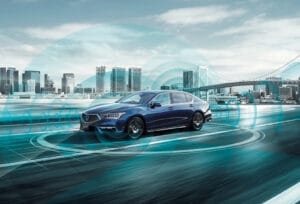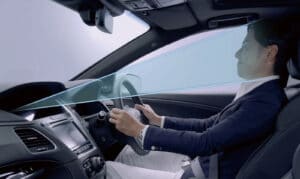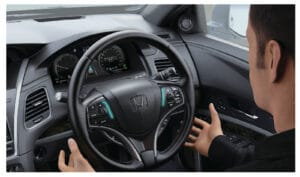
Honda just launched its next-generation Honda SENSING Elite safety system with Level 3 automated driving features in Japan.
Honda revealed it’s taking the next step in the development of its autonomous technology, announcing plans to begin leasing a vehicle in Japan equipped with Honda SENSING Elite.
The Japanese automaker is offering the system in the new Honda Legend EX, which in the U.S. is part of the Acura brand. The automaker claims the move is part of the effort “to realize a collision-free society based on its global safety slogan, ‘Safety for Everyone.’” Honda enjoys a reputation for the research and development of innovative safety technologies.
Honda SENSING Elite is a variation of Honda SENSING, a suite of safety and driver-assistive technologies currently available on Honda vehicles around the world.
Automaker improves technology
The technology suite qualifies as a Level 3 autonomous driving system, for which Honda received the designation from the Japanese Ministry of Land, Infrastructure, Transport and Tourism (MLIT) late last year. This system lets the vehicle “drive” itself under very specific traffic circumstances.
The Society of Automotive Engineers (SAE) defines Level 3 autonomy as “able to detect the environment around them, Level 3 vehicles contain the lowest-tier system that is classified as an automated driving system as opposed to a manual system.” Tesla’s Autopilot and Cadillac’s Super Cruise systems are considered Level 2.
How it works
The system uses a combination of 3-D high-definition maps as well as satellite positioning to determine the vehicle’s position and road conditions at any given moment. Additional data is collected from external sensors and cameras providing information about the vehicle’s surroundings and the driver’s condition for the system as well.
Based on this wide range of information, the main electronic control unit, or ECU, recognizes current and anticipates future conditions to help the driver with all aspects of driving, such as acceleration, braking and steering. Some of the key features of the system include:
- Hands-off functionality with adaptive in-lane driving and active lane-change assist with hands-off function (driver and system assessment)
- Traffic Jam Pilot with emergency stop assist
- Human-Machine Interface that instantly tells the driver the system’s operating status
Honda simulated about 10 million patterns of possible real-world situations during system development. Additionally, the automaker conduced real-world demonstration tests on expressways for a total of approximately 800,000 miles. And the system incorporates a redundant system design to ensure safety and reliability in the event of a problem with any of the devices.
Industry looking to make inroads
Honda’s announcement is just the latest made by OEMs concerning the development of AI tech. On Feb. 1, Ford and Google unveiled a strategic partnership to accelerate Ford’s transformation in the form of a new collaborative group, Team Upshift.
Ford also named Google Cloud its preferred cloud provider to use Google’s expertise in data, artificial intelligence (AI), and machine learning (ML).
On Jan. 19, GM revealed that the company along with tech developer Cruise entered a long-term strategic relationship with Microsoft to accelerate the commercialization of self-driving vehicles.
To realize the potential of cloud computing for self-driving vehicles, Cruise will use Azure, Microsoft’s cloud and edge computing platform, to commercialize its unique autonomous vehicle solutions at scale.
Microsoft, as Cruise’s preferred cloud provider, will also use the autonomous tech company’s expertise in product development. Microsoft joined GM, Honda and institutional investors in a combined new equity investment of more than $2 billion in Cruise, bringing the post-money valuation of Cruise to $30 billion.
March 10, 2021 at 06:00AM
https://ift.tt/3rBVPMC
Honda Ups Its Game with Level 3 AI Technology Suite - Paul Eisenstein
https://ift.tt/38hkzRl
Honda




No comments:
Post a Comment